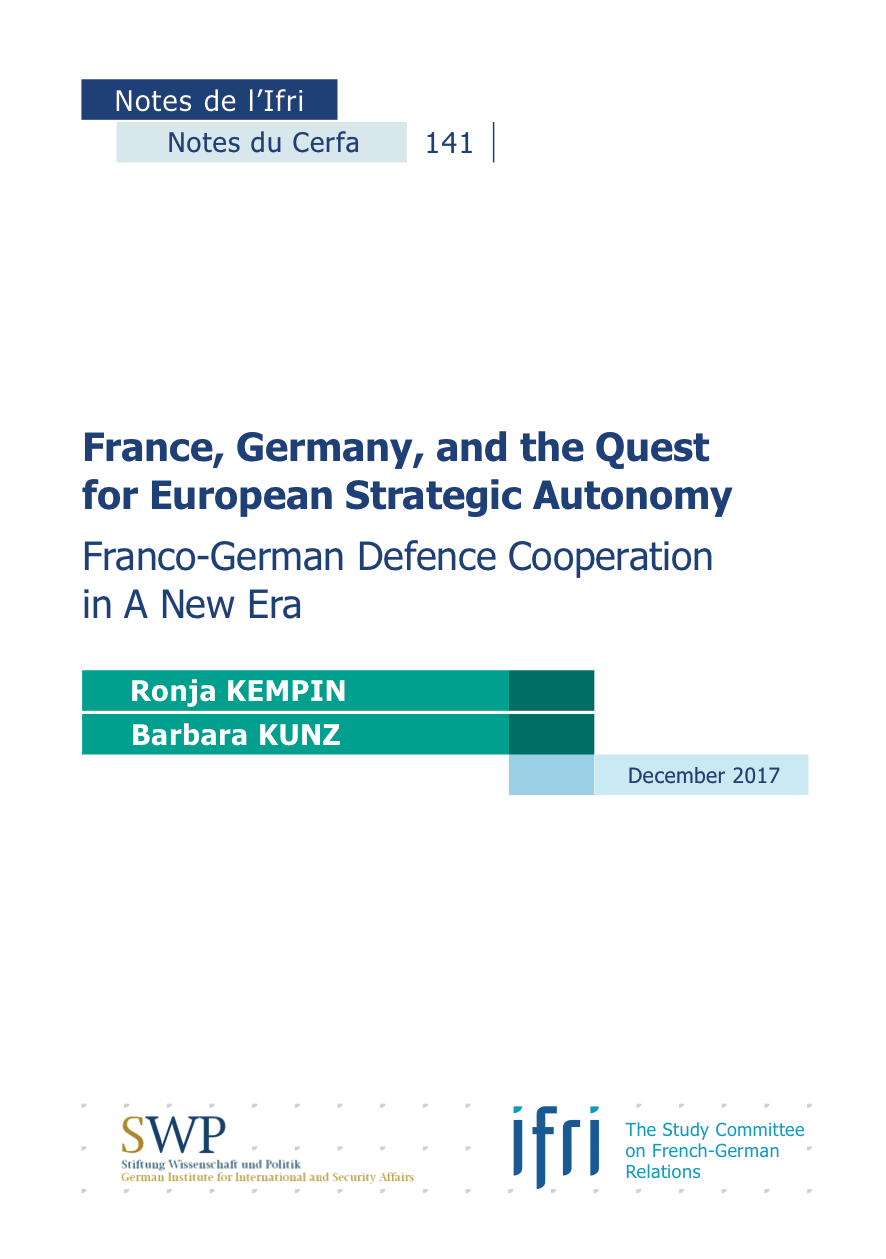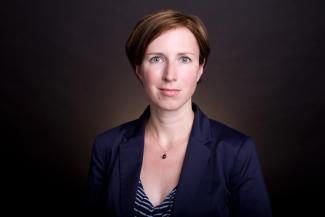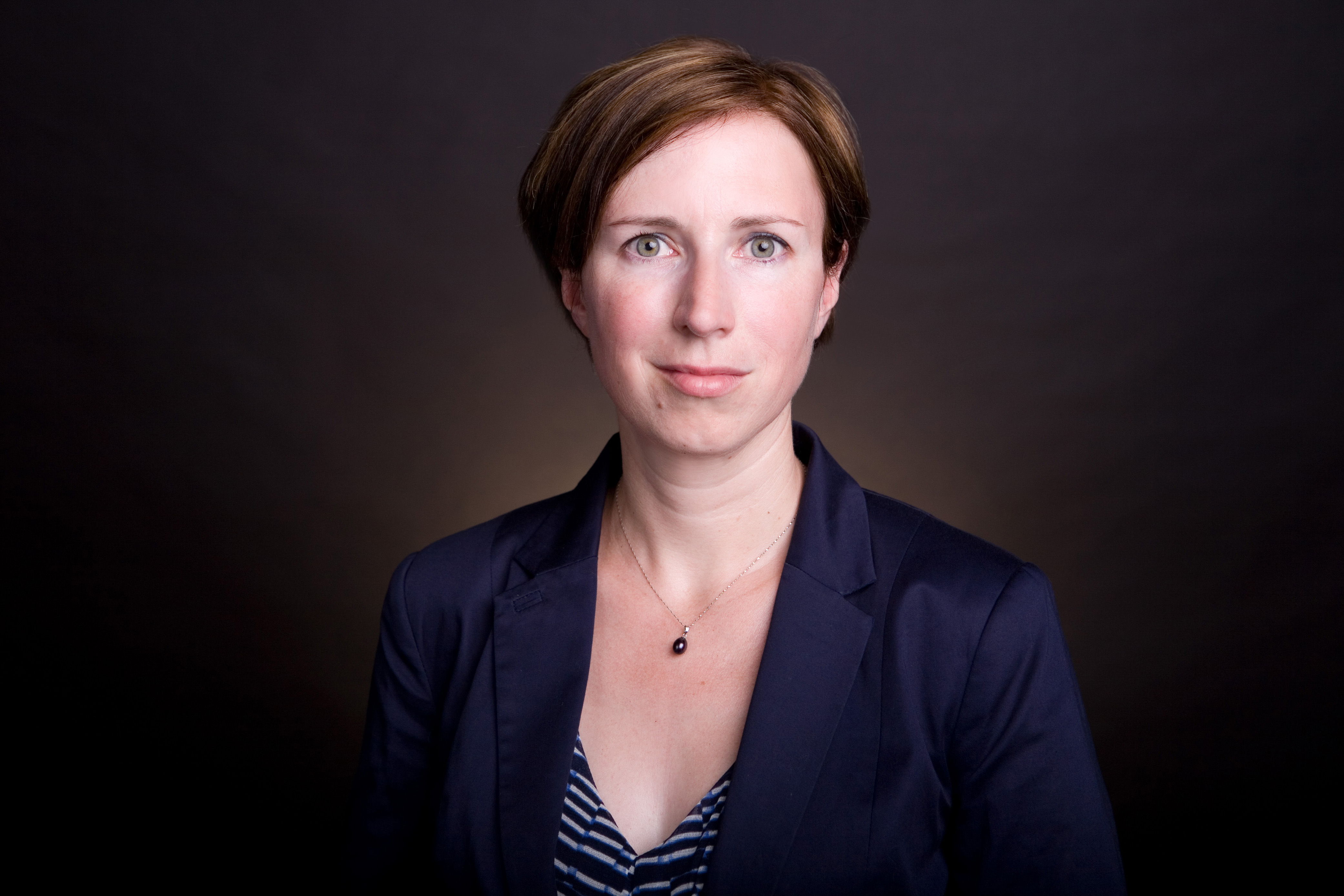France, Germany, and the Quest for European Strategic Autonomy: Franco-German Defence Cooperation in A New Era

How can France and Germany contribute to reaching the goal of European strategic autonomy? This key question has been guiding the work with the present report. In the light of a more demanding security environment, but also a rare momentum for further European integration, Berlin and Paris have to take their security and defense cooperation to the next level, bilaterally as well as in the EU.
Progress in Franco-German security and defense cooperation is a key step towards strategic autonomy with its three dimensions: political, operational and industrial autonomy. Political autonomy has so far been neglected in Franco-German security and defense cooperation. Past cooperation was almost exclusively linked to the operational, sometimes industrial levels. The new impetus needs to be embedded in a farther reaching political dialogue. This can best be achieved by elaborating a Franco-German White Paper on Security and Defense. At the operational level, the primary objective for Paris and Berlin is to enable Europeans to autonomously carry out the Petersberg tasks, as defined in article 43(1) of the Treaty of Lisbon. Nevertheless, the type of capabilities needed must be derived from a political analysis of the strategic environment and the threats posed. The same accounts for industrial autonomy where France and Germany should work towards closer cooperation and shared rules embedded in a political dialogue.
With seven concrete recommendations, the paper aims to contribute to establishing strategic autonomy, starting at the bilateral level to provide leadership for an ambitious European project.

About the authors:
Ronja Kempin, Senior Fellow, Research Division EU/Europe, German Institute for International and Security Affairs (SWP), Berlin.
Barbara Kunz, Research Fellow at the Study Committee on French-German Relations (Cerfa), Institut Français de Relations Internationales (Ifri), Paris.
The recommendations in this report are the result of a joint project by the Institut Français de Relations Internationales (Ifri) and the German Institute for International and Security Affairs (SWP). Directed by the two authors, it gathered a distinguished group of French and German security and defence policy experts for three workshops in Berlin and Paris in 2016 and 2017. This report and its recommendations are based upon the group’s discussions. The list of participants can be found at the end of this publication.
Download the full analysis
This page contains only a summary of our work. If you would like to have access to all the information from our research on the subject, you can download the full version in PDF format.
France, Germany, and the Quest for European Strategic Autonomy: Franco-German Defence Cooperation in A New Era
Related centers and programs
Discover our other research centers and programsFind out more
Discover all our analysesBundeswehr: From Zeitenwende (historic turning point) to Epochenbruch (epochal shift)
The Zeitenwende (historic turning point) announced by Olaf Scholz on February 27, 2022, is shifting into high gear. Financially supported by the March 2025 reform of Germany’s “debt break” and backed by a broad political and societal consensus to strengthen and modernize the Bundeswehr, Germany's military capabilities are set to rapidly increase over the coming years. Expected to assume a central role in the defense of the European continent in the context of changing transatlantic relations, Berlin’s military-political position on the continent is being radically transformed.
Merz’ European Policy-making: The End of the ‘German Vote’?
Friedrich Merz’s European ambition is to turn Germany, long seen as hesitant into a leading actor within the European Union (EU). To that end, he has pledged to end the “German vote,” a phenomenon that epitomizes the paradox of a country both indispensable and frequently absent from European decision-making.

Securing critical raw material (CRM) value chains – a prerequisite for Europe’s technological resilience
At the heart of economic security, technological resilience is a backbone of the European Union’s (EU) competitiveness. The EU’s energy and digital transitions depend on critical raw materials (CRM).

Reconciling competitiveness and demographic change: a Franco-German imperative
France and Germany are facing parallel demographic shifts that could reshape the future of their economies and their social models. These shifts reflect broader European patterns but are magnified by the central role both nations play in EU governance and competitiveness.











